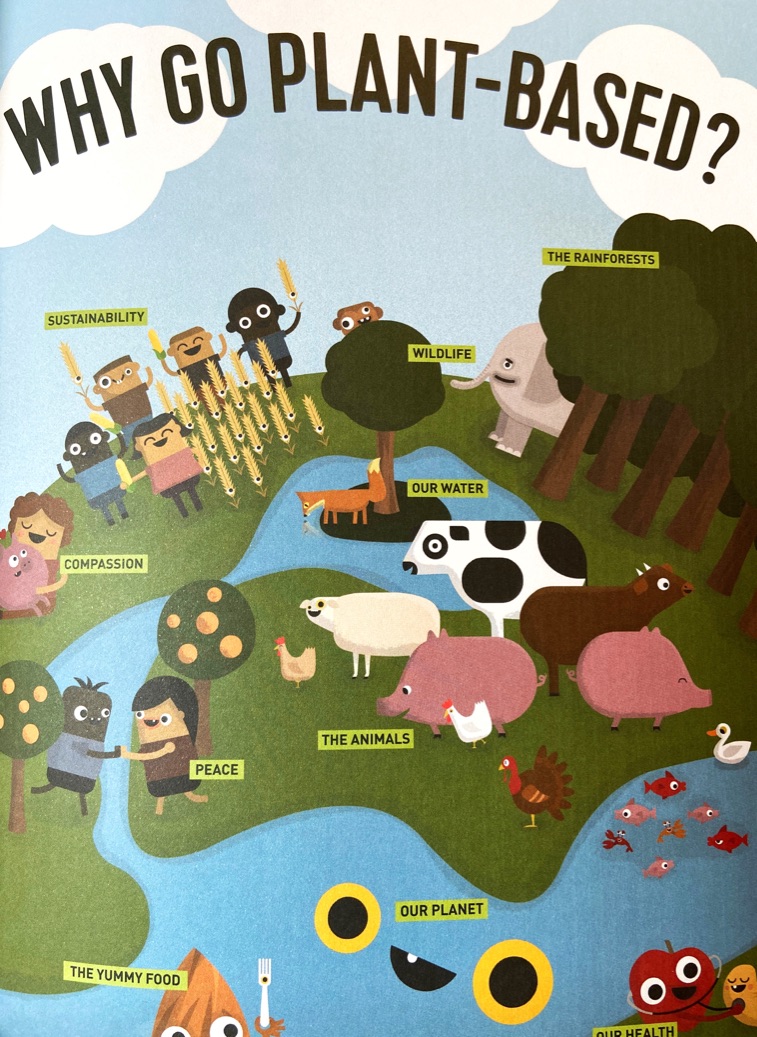We all know that these are crazy times. Situations are unfolding that are unprecedented in the human race. I want to share my thoughts and feelings with you as we all face these uncertain times. (artwork from Simple Happy Kitchen)
How COVID-19 is affecting us.
We have morphed from being completely free to do, eat, travel, communicate, socialize, exercise, entertain, and live according to our desires, to completely self isolating.
We have pivoted from hugging our family members and friends, to not getting within 2 meters of one another. Even the idea of going for a walk with friends, while keeping a safe distance is being thought of as risky.
We are all doing what we can to mitigate the chances of this nasty virus spreading beyond control. Doctor friends on the front lines are telling us this is here in our community and are texting us to “stay home and be safe”.
No one is immune to this virus, though there are age groups that are more susceptible than others. We all have family and friends who could be very negatively affected by this virus, and that makes us diligent.
How did this happen?
It’s not completely clear, but it looks as though the Coronavirus stemmed from the trapping and containment of wild animals.
Here is a link to the CDC (Central for Disease Control) about zoonotic diseases, which are diseases caused by germs that spread between animals and people.
This virus is being traced back to bats, ferrets, pangolins, and possibly seafood sold at Chinese wet markets. (Click on links above for more information on this topic.)
The virus seems to have spread through these animals, whose cages are all piled one on top of the other, to humans.
This makes me wonder, if man didn’t cage animals, sell them and ultimately kill them for food, medicine, fashion and other products, would we be in this mess?
Below is a fascinating talk by Dr. Michael Greger from 2013 on pandemics and how viruses spread. Don’t worry, his normally quirky voice is almost soothing in this video. 😉
Thoughts on the world post CoVid-19
~ I believe the world will forever be impacted by this. When 2020 is spoken of in the future it will be the year of the Coronavirus.
~ I wonder what will change when we come out the other side?
~ Will we look at the information collected on how pandemics start and finally make a real effort to steer away from the cultural traditions that cause them?
~ Will we still take Mother Earth for granted in such a devastating way?
~ Will we look back on this virus and see it as a sort of population cull?
~ Will it wake us up to the ways in which human beings need to change?
~ Will we be cautious and change our ways for some time and then revert to all of our old ways of being?
So many unknown answers…
What I am doing wrong
I know I am not perfect. I don’t drive an electric car, I love to travel (probably too much), I live in a larger than necessary house and I don’t always buy locally. I know I use WAY too much plastic and though I am anal about recycling I know down deep many of those items in my blue bin could be on a barge headed for a third world country. We don’t have solar panels, not that we didn’t look into it. We certainly don’t live off the grid and are not self sufficient. (Not even close, but how many of us are?!) I let my kids order clothes from China… I just ordered wine from the winery down the road to be shipped to my door because I can and I enjoy it. Maybe it’s time to take a good hard look at how I can do better…
What I am doing right
Firstly, I eat plant-based.
In my opinion eating food grown from the land that does not contain any animal products is the most effective way to minimize my footprint on the earth. Check out this sweet illustration by Miki Mottes of Simple Happy Kitchen of what a vegan saves each day.
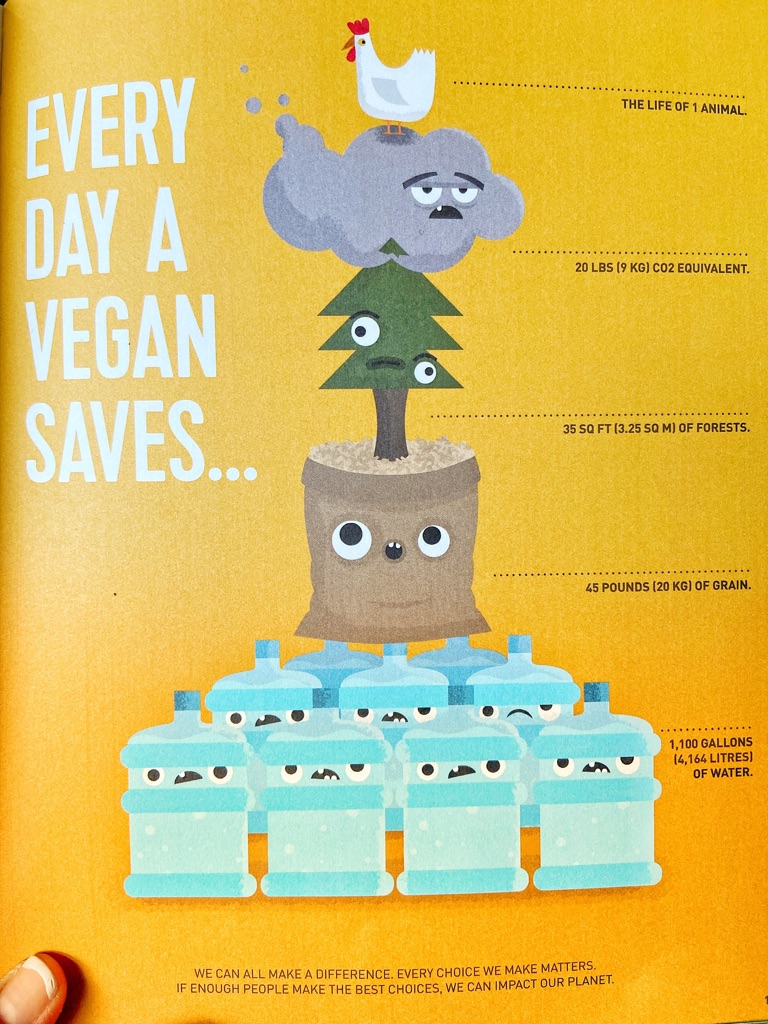
Greenhouse-gas Footprint of different diets
According to the Economist and the chart below, going vegan for two-thirds of meals could cut food-related carbon emissions by 60%.
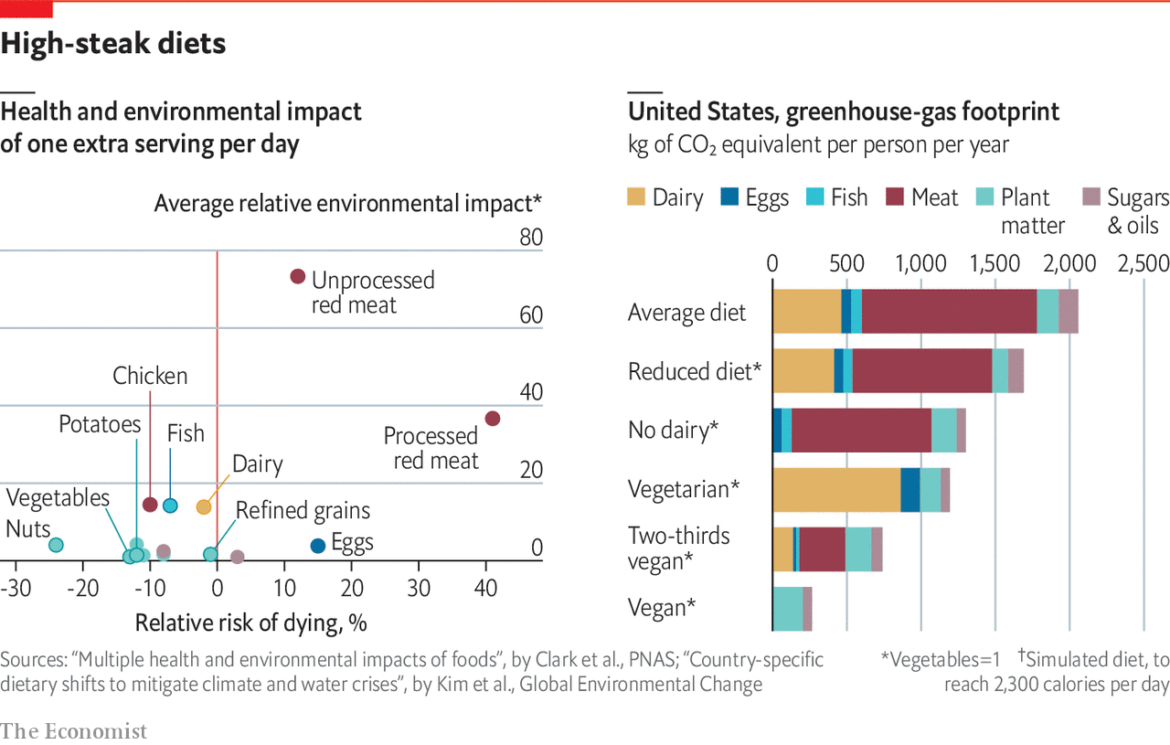
I grow vegetable gardens.
Following my Saskatchewan roots, each year I grow one or more vegetable gardens in my yard. It hasn’t always been easy… Moose, deer, rabbits, birds, insects and extreme weather, (like snow in Calgary in August) has made it challenging to say the least!
Each year I try. I believe that, especially now, we need to take responsibility for growing some of our own food. In fact in the past week I have had numerous people reach out to me about what seeds to plant early and how to start a garden. I think this virus has us really considering our food security.
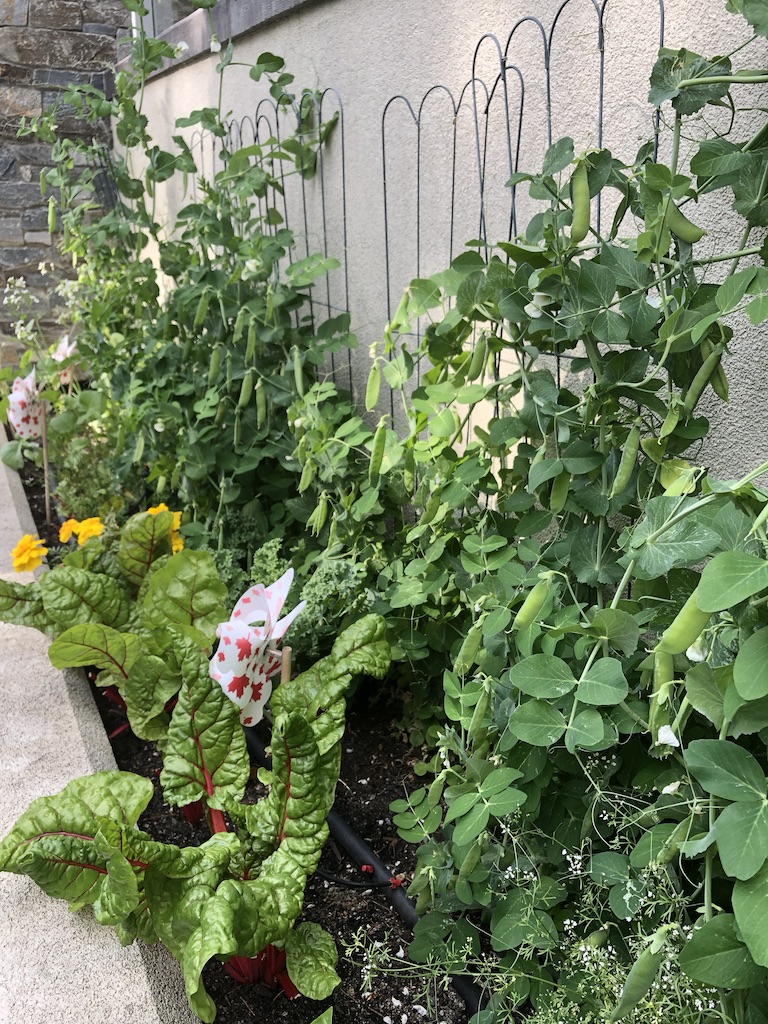
I have an opportunity for you to pitch in, no matter where you live…
My volunteers and I, at the Okanagan Fruit Tree Project, (formerly the Central Okanagan Community Farm Society), head up a large non-profit vegetable garden here in Kelowna that provides free vegetables to any interested social service. We provide those with no access to fresh vegetables, to free bins of organically grown produce.
We are always looking for volunteers to help run our two plots that total nearly an acre. As a thanks for the man power, we offer volunteers the ability to take home produce as it becomes available, for their own families.
Please email me for more information on how to get involved. I have a feeling this year we will have many interested volunteers!
If you don’t live here, perhaps you could join together with friends or family to start a garden.
You could till/dig up a plot in someone’s yard and come together to grow food. Use what you need and donate the rest. It’s such a great feeling. Food banks and those who suffer from food insecurity will be even more vulnerable now.
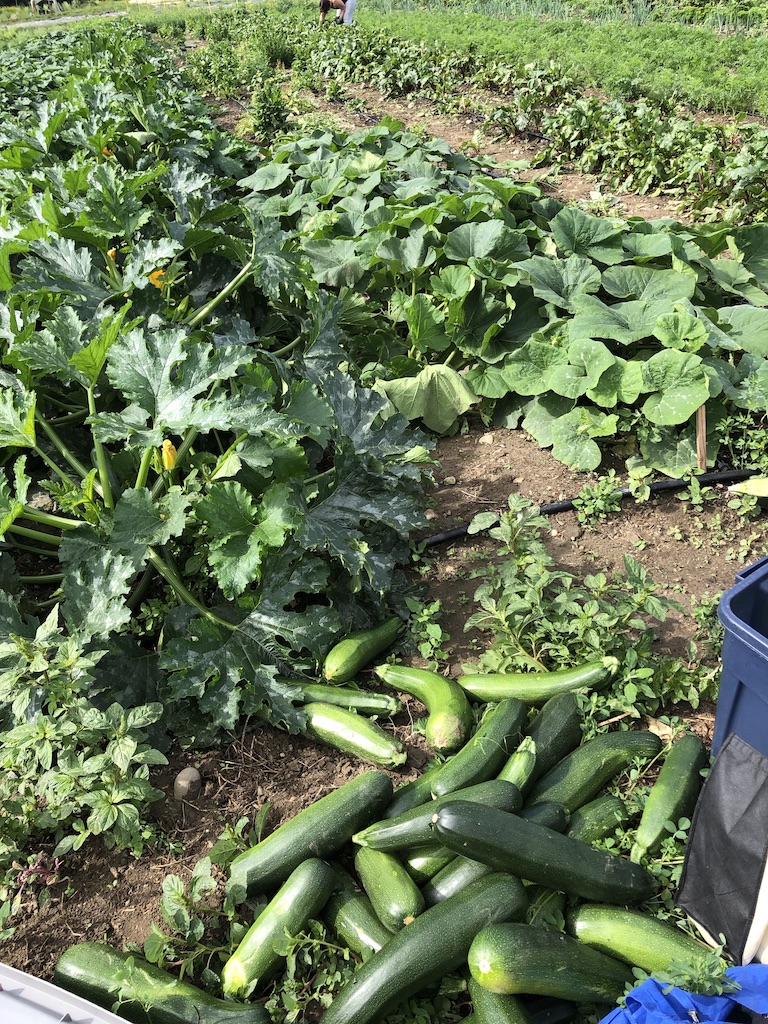
What can we do right now to make this situation better and improve our health?
Take this time to buy what other people aren’t hoarding:
Vegetables, fruits, grains, tubers, legumes, nuts and seeds. Here is a helpful plant-based quarantine grocery list from the Forks Over Knives website. If you check out photos of grocery shelves being emptied, you will notice much of what is left are exactly the items that are the healthiest!
These foods will increase the power of your immune system. Should we be subjected to the virus, we need our immune system to be operating at the best possible level to allow our bodies to fight back.
Keep your body moving and dopamine flowing.
We all know exercise makes our body and mind healthier. Do something, anything, get some fresh air… Face-time with a friend and workout together! It might be very entertaining.
Keep your mental health in check.
Find something you love to do that relaxes you… No drinking wine doesn’t qualify… 😉
~ Read a book.
~ Sit quietly in the sun.
~ Stretch.
~ Take some time off of social media and the news.
~ Call someone you haven’t talked to forever who makes you feel good.
~ Write down 5 things you are grateful for today and 3 things you took for granted two weeks ago.
~ Snuggle your pet.
~ Check on your neighbor.
What will food in the future look like?
We can all make a difference in deciding where the majority of our food originates. Trust me, I’m the first to love up avocado and pineapple but is this sustainable for our planet?
Maybe we should go back to our ancestors’ ways of growing, harvesting, canning and freezing produce to save for the winter months… Society has come so far in its ability to make everything accessible at anytime and anywhere in the world. We are spoiled rotten, but is it really serving us?
There are so many ways in which we need to change, in order to turn this planet crisis around. Will we step up and make changes, or if this all goes away soon, will we forget the anxiousness and unknowing and go back to our pre-virus ways?
Will we order seeds, plant gardens, erect greenhouses, share with our neighbors and take on more simple lives? I don’t know. Is this crisis going to require us to take a step back in time and appreciate all of the knowledge of the prior generations? I think it is time to blend the amazing information we have access to through technology with the knowledge of our ancestors.
Food waste
I think back to my grandmothers. They lived simply, they raised almost all of their own food. They didn’t waste anything. Not food, water, fabric, tools, supplies or electricity. When things broke down they were repaired, not thrown in the trash or recycle bin. They knew how to do things, create, build, not just google. I think we could help Mother Earth by returning to some of these practices.
I feel like right now, as a society, we waste a lot… It is estimated that for every 4 grocery bags of food that we buy, we will waste one of them. More information in this article.
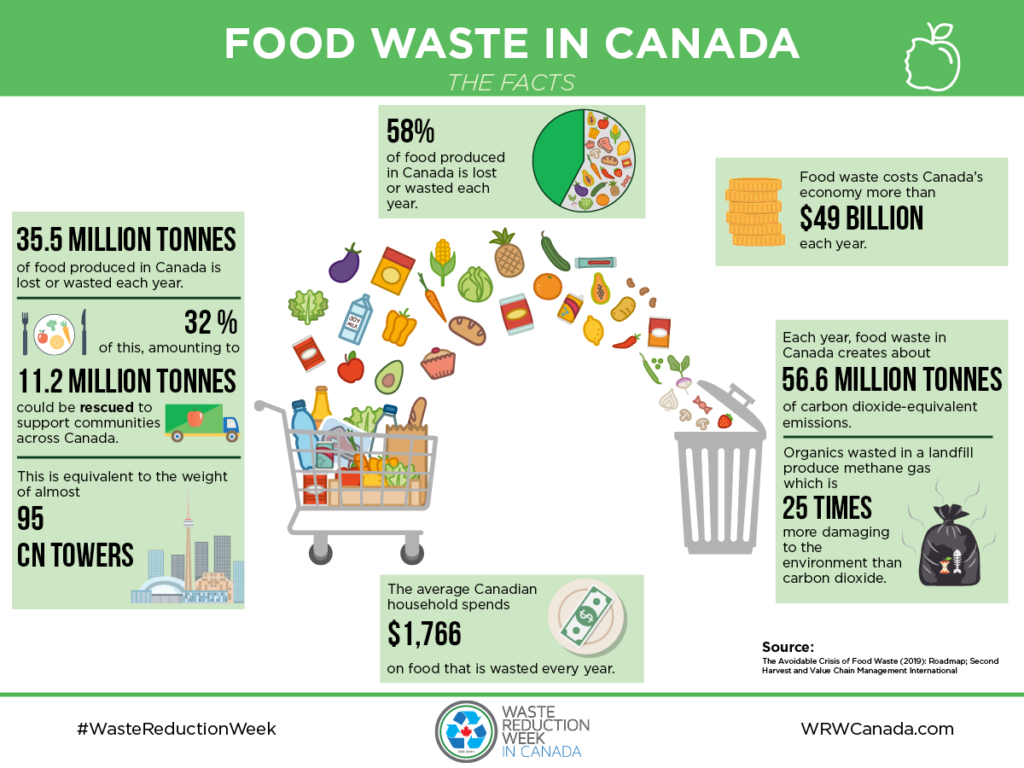
During this time of isolation, (we are on day 6 due to our return from international travel), the groceries we have on hand are becoming very important.
Suddenly food that we enjoy and is normally only a grocery store trip away, has become more of a luxury. Something inside of us, that fears the unknown, makes us think about conserving what we do have. I see my daughter instinctually using up the vegetables that look like they are starting to turn. I am going through the fridge and freezing what will not last much longer.
I feel this slight worry that we don’t know what will or will not happen, so we should be conserving the food we do have.
I sense a mature, future thinking teen in my 15 year old daughter. I see her preparing broccoli for dinner and steaming not only the florets, but the stalk that she dislikes.
Part of me wants to tell her it’s going to be alright, that she doesn’t have to worry. Another part of me realizes that this is a teachable moment for us all.
We just don’t know what the future holds.
Maybe it is time to save the broccoli stalks and the planet.

